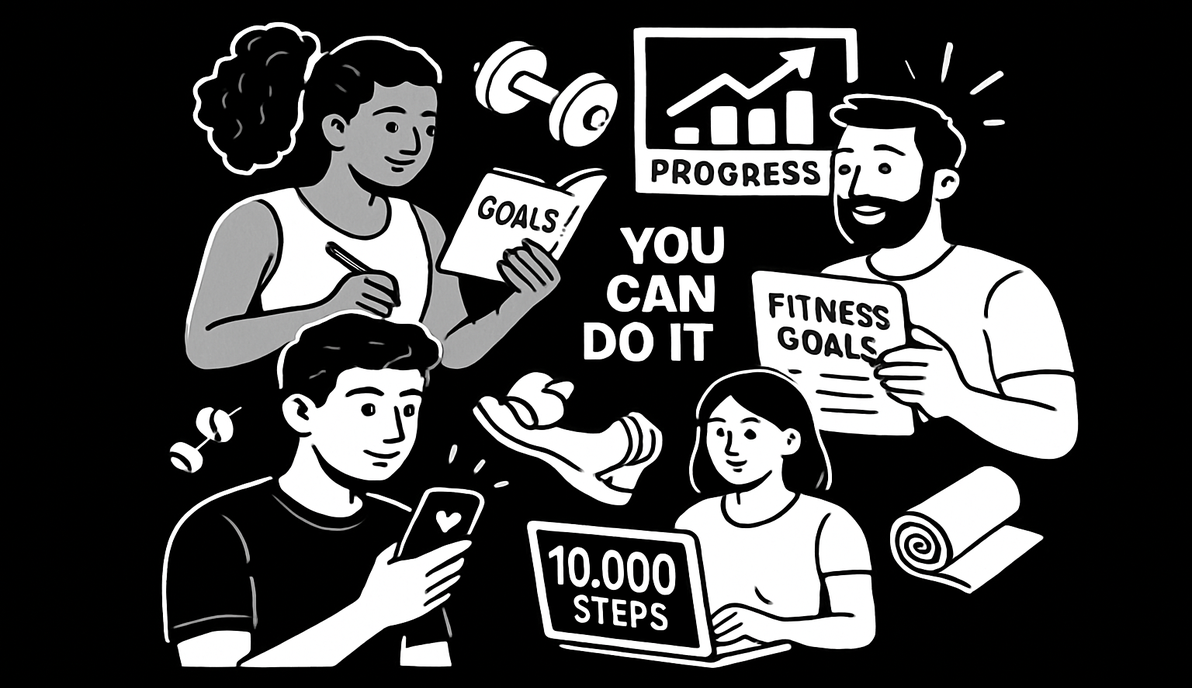Lessons from Coaching Founders: Why High Performers Burn Out Even When They Work Out
This post breaks down the hidden link between high performance, recovery, and burnout and what to do if you're a founder or leader stuck in the cycle.


You train hard. You eat well.
You’re disciplined. You’re consistent. You’re locked in.
But you’re still tired. Not getting enough sleep. Energy dips, mood’s meh. Even the work you're putting in the gym isn't fully showing.
If you’re a founder or business leader who trains regularly but still feels like the results aren't showing, you’re not broken — and you shouldn’t blame the business.
But you might be able to blame burnout.
Here’s the signs you might be experiencing it, and what to do about it.
Fitness Doesn’t Always Mean Health
We’ve been told that working out, lifting weights, tracking macros, and hitting our steps automatically means we’re “healthy.”
But real life isn't that simple. As much as I talk about the benefits of training like an athlete, founders and other high performers in business don’t operate like athletes. You’re juggling meetings, deadlines, family life, decision fatigue and a nervous system that rarely gets a break.
Stress is stress - your body doesn't care if it's from home, work or from the gym. So eventually, even good stress like training becomes a negative if your body doesn't have the capacity to recover.
Why High-Performers Struggle With Recovery.
It’s not that high performers don’t believe in recovery. It’s that they’re wired to ignore it.
The same intensity that makes someone a great founder, operator, or athlete: urgency, drive, and a “what’s next” reflex is the same thing that makes it hard to stop even when you most need it.
Taking a break feels like losing momentum. Stillness feels unproductive. And so rest, even when it’s needed, feels like weakness.
That’s the real issue. Not ignorance. Not laziness.
Just a system that rewards output, and a mindset that doesn’t know how to downshift.
So when recovery is offered in the form of things like meditation, breathwork, yoga and general wellness... It feels slow. Passive. Like something you’ll “get to later.”
As a founder, boxer and coach myself I know this all too well. But here’s the reality: The more responsibility you have, the more recovery you need.
Not about the aesthetics. Just biology: your nervous system, joints, and energy levels need attention in the same way your work does.
If not, your output drops and you lose your edge, no matter how hard you train.
Burnout Doesn’t Always Look Like Burnout
Burnout isn’t always dramatic.
It can look like:
- Inconsistent sleep
- Feeling wired mentally but tired physically (because you haven't slept)
- Training hard but not making progress (often the cause of "skinny-fat"
- Snapping at people over nothing - the short fuse
These are all signs of a nervous system that’s been under pressure and now it’s signalling the brakes. And it's worth listening to these signals before you run into the more serious problems of overtraining or adrenal fatigue.
When the Gym Becomes the Problem - Overtraining
Training’s supposed to help you feel better, right? More energy, more focus, more drive. That's the dream us fitness professionals sell.
But if your system is already at its max due to mental, emotional or yes physical overload then your training can stop being a solution and start becoming another stressor.
That’s when you start:
- Feeling worse after your workouts
- Picking up small injuries
- Losing sleep quality instead of gaining it
- Training harder and getting fewer results
You Don’t Need to Slow Down. You Need a Smarter System
I don’t coach high performers by preaching the wellness agendas they hear a lot of the time. I know that most of them are high agency, and if they understood the benefits of slowing down, they'd probably do it more often.
But it is worth knowing when to push, when to pull, and how to cycle intensity with intention. Elite athletes, who train harder than most people could ever imagine place super emphasis on recovery - nutrition, working with sports therapists, HRV tracking.
That is all because activity is only part of the process, recovery is the other part. Most people don't have the access or time for that level of recovery, but there is definitely a way to apply it to your own life.
What that looks like when you have a system is:
- A training programme that's adapted for your actual stress load and life
- Recovery that’s built in - simple, effective practices that keep you fresh and motivated
- Nutrition that fuels focus, not just makes you feel better in the moment
- A structure that supports consistency without running you into the ground
Check Yourself Before You Break Yourself
If any of this sounds familiar:
- You wake up tired most days
- You’re “doing everything right” but plateauing
- You feel fit but reactive, foggy, or foggy
Then the issue probably isn’t your ambition. It’s the system you’re using to carry it.
Where to Start
You don’t need to stop training. You don’t need to move to Bali. You don’t need to trade ambition for balance.
All you need isa system that helps your body and mind recover at the same level you perform - whether you're in London or Lagos.
If you’re a founder or high-output operator, start here:
→ Book a 1:1 Performance Consultation
A 1:1 call with us to audit your current setup: training, recovery, & lifestyle to help fix the parts that are quietly holding you back.
You can’t outwork chronic stress. But with the right system, you won’t need to.




